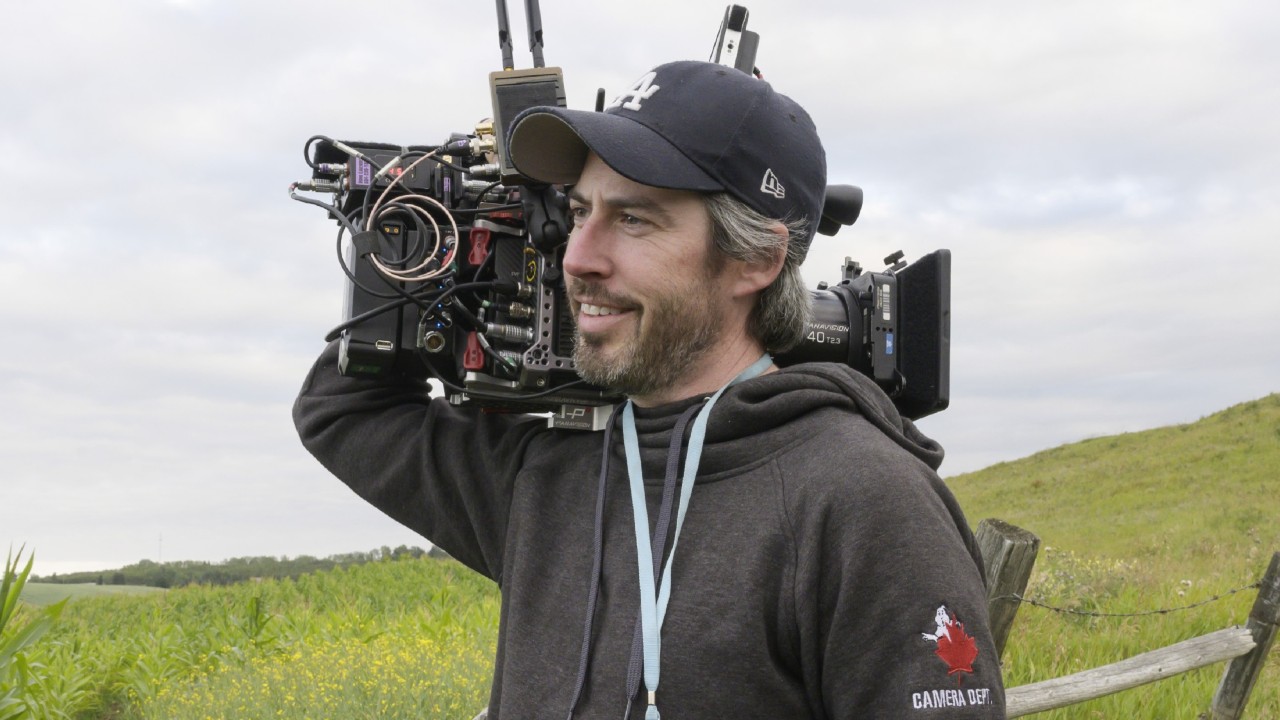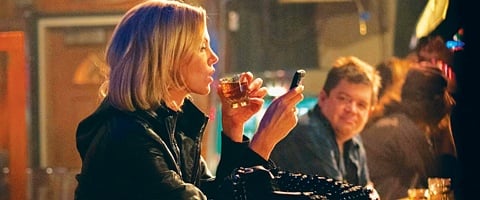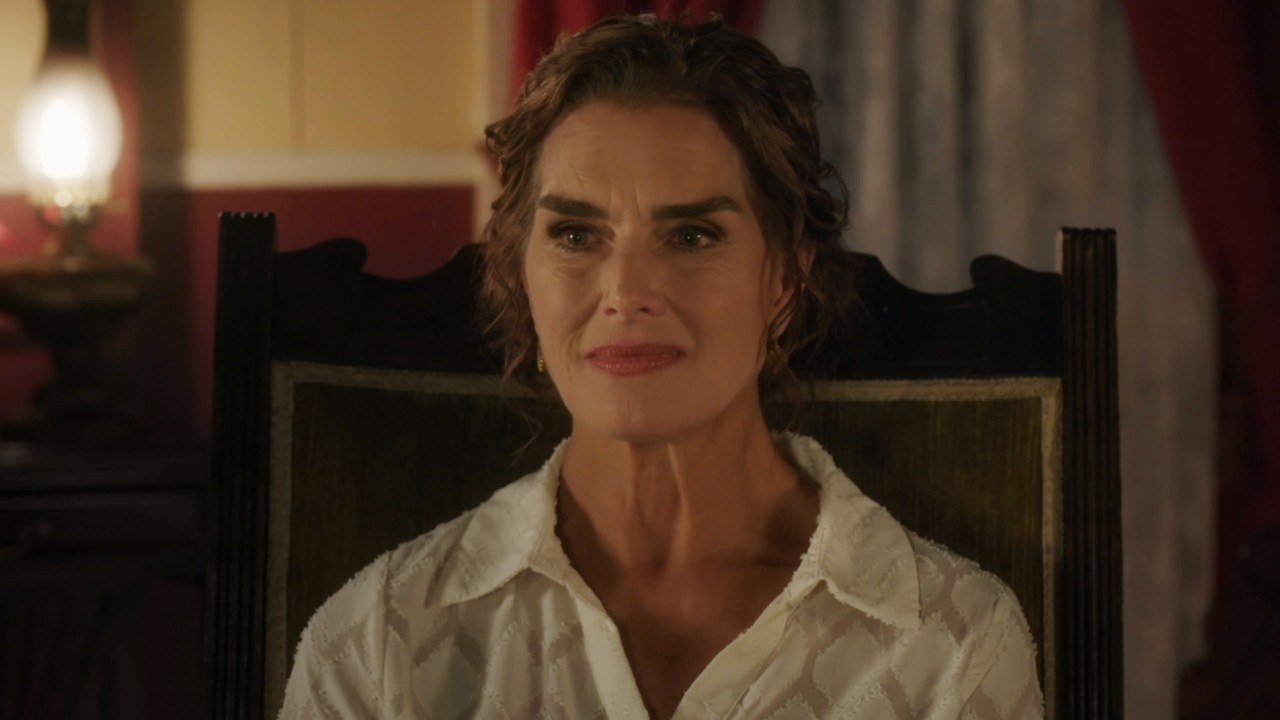Jason Reitman Talks Young Adult, Autobiographical Films, And His Evolving Directing Style

Your Daily Blend of Entertainment News
You are now subscribed
Your newsletter sign-up was successful
There are a lot of big meta questions to be asked about Young Adult, the new film from the Juno team of director Jason Reitman and writer Diablo Cody. It comes at the end of a year in which films like Bad Teacher and Bridesmaids made heroines out of women following some selfish impulses, and Charlize Theron's Young Adult character may be the most selfish of them all. And Young Adult is as dark and caustic as Juno was ultimately optimistic and sentimental, which could inspire any armchair psychologist to come up with plenty of theories about Reitman's and Cody's state of mind.
But Reitman is in no mood to answer any of these questions, and following his massive press tour for Up in the Air-- a film that was coincidentally about firing people right when the economy was tanking-- you can't blame him. Young Adult is in a way an attempt to get away from that meta conversation, a stripped-down and sometimes aggressively difficult film about a supremely unlikeable character who, despite plenty of reasons in favor of it, refuses to change. It's so immersed in its lead character that it demands to be taken on its own terms, as a character study of a deeply unlikeable person who, at the same time, is that little part of all of us that can't get over high school.
With not much interest myself in that whole thematic awards season conversation, I instead asked Reitman about the smaller, crucial stuff, like how he stripped down his directorial style for the film, how he settled on the opening credits that take place entirely inside a tape deck, how he nails a comedic tone as tricky as this one, and how he's changed his filmmaking style as his career has gone on. He also had some memories of participating in a director's roundtable in 2009 with that year's crop of Best Director nominees-- you may be surprised to hear this, but it's much easier to get a word in edgewise around Bennett Miller than James Cameron.
Read it all below, and see Young Adult in limited release this weekend and expanding wider next week.
It took a while for me to figure out what you were going for in the credit sequence, where you get inside the tape deck playing that mix tape and then just stick around. How did you settle on that as the motif for your credits?
The first thing I did when I read Young Adult was I sent Diablo a photo of Memorex tape I remembered when I was a kid. So that was a strange way into the movie from the beginning, was mix tapes and cassettes. I thought it was really important to establish the idea that Mavis is so far off track, and so in search of the one moment when things were right, that she's actually driving back to see the guy from that time. The tape represents that time better than any idea I could think of to get into the nuts and bolts of it. The tape is a great identifier for the era.
There's also something about the gears of the tape spinning you into her head.
Your Daily Blend of Entertainment News
Yeah, and the circular nature. I can come up with all sorts of film school metaphors for it. After the fact you can sit back and expound on what things mean, but when you're writing and directing you're going off of instinct. You have an instinct of what something is going to feel like.
It's elaborate in its own way, with the closeup photograph of the tape, but the credits sequence isn't animated or anything like your previous credit sequences, and I feel like that reflects what you're doing with the movie as a whole. What was the guiding process behind the look here?
This character could so easily be misunderstood as a caricature that every choice was made in this film to make sure she was based in hard reality. Shooting digitally, a lot of it handheld, using that clean color palette-- everything was geared toward making sure that people understood this is a real person.

Had you wanted to do something cleaner like that as your career went on?
I think my films have gotten cleaner and cleaner. Thank You For Smoking was the most stylized. Now i look back and I think, eh, that's a little silly. People like it and I get it and that's great, but as I go on I want my films to be cleaner and more naturalistic.
You make me think of Eastwood when you talk about being cleaner and naturalistic. Is it something like that you want to aim for?
When I think of the directors I admire, I don't know, I see a certain cleanness in their filmmaking. A lot of the 70s guy, Ashby, some of Nichols' stuff-- I don't know. The recent guys-- Alexander [Payne] is certainly like that.
Uncomfortable humor is everywhere right now, but you have to do it without torturing the audience. Where do you find that tone, and how do you modulate i tot make sure it doesn't go over?
When I read the script, it makes me uncomfortable. I think, OK, this is how the audience needs to feel. It's like you hear a song and it's in the key of C, and you say alright, the song is in the key of C. And the you're on set and you're like, alright, key of C. And you watch a performance and say, nope, that's a C sharp. And then something else, oh, that's an A, that's way off. Directing is a reactionary job. You're reacting to something you see in real life, an article you read in the newspaper, a book you read, a script you read. You look at a rehearsal, you listen to a table read, all the way to looking at a cut, listening to a mix. You're making all these little binary decisions that culminate in a feeling. When you start directing, maybe you're right 30% of the time. As you get better and better you learn to be more right at that culmination. As you answer more questions the image you're creating gives a very specific feeling. And then it's just a question of, does that feeling matter?
Is it about knowing exactly which feeling you're going for when you start, or allowing it to change?
I find that a few things don't vary, and one is that gut instinct of what the audience is supposed to feel. I wouldn't know how to make a movie if I didn't know what they were supposed to feel at any given moment.
A lot of people say the opposite, that you can't make a movie for an audience, that you have to make what you want.
I don't believe in the film in a vacuum. I couldn't make a film for nobody-- that doesn't make sense. Let me clarify-- I'm not saying that i need to make an audience happy. It's not the director's job to appease the audience, but I don't think you can make a film that works with or without an audience, because it's a manipulative medium. Every choice is made with the knowledge that the audience expects something, and you're giving it to them or not. That's the whole thing. Filmmaking is this unusual art form that uses 20 different art forms all at the same time, and you have to get everything to work in harmony so it makes the audience feel something specific. Probably the best thing for me is to watch the audience respond to the uncomfortable scenes. That's when I have the most unusual control over the audience, and they feel the strangest thing they don't often feel in another movie.

Do you know a Mavis but also feel like you are a Mavis?
I feel like every film is autobiographical. Not literally autobiographical but emotionally autobiographical. Any film that doesn't have a piece of the director's damage in it is kind of purposeless. This, like all my films, is exploring some of my issues. I hope by exploring the things that i"m embarrassed about, that bring me shame, that make me uncomfortable, another audience member will watch them and hopefully have a catharsis.
I want to ask about the Hollywood Reporter directors roundtable you did, which is the second one you've done. Is it strange to be bunched in a class of directors in a certain year just because your films are being released at the same time? Like purely by coincidence your films are stacked up against each other?
I guess I don't feel stacked up against them. When I'm sitting at a table, I'm thrilled to be at the same table as these guys. A guy like Alexander is the reason I"m a director. I did this two years ago with Kathryn and Cameron and Quentin and-
That was such a good year.
It was a loud year, is what is was. Sitting at a table with them is much more vibrant than sitting with Steve McQueen and Alexander and Bennett Miller. It's much different when you're with Lee Daniels, Kathryn Bigelow, Quentin Tarantino, James Cameron-- you fight for your meal! It was awesome. They were both fun, both obviously very flattering.
Staff Writer at CinemaBlend

